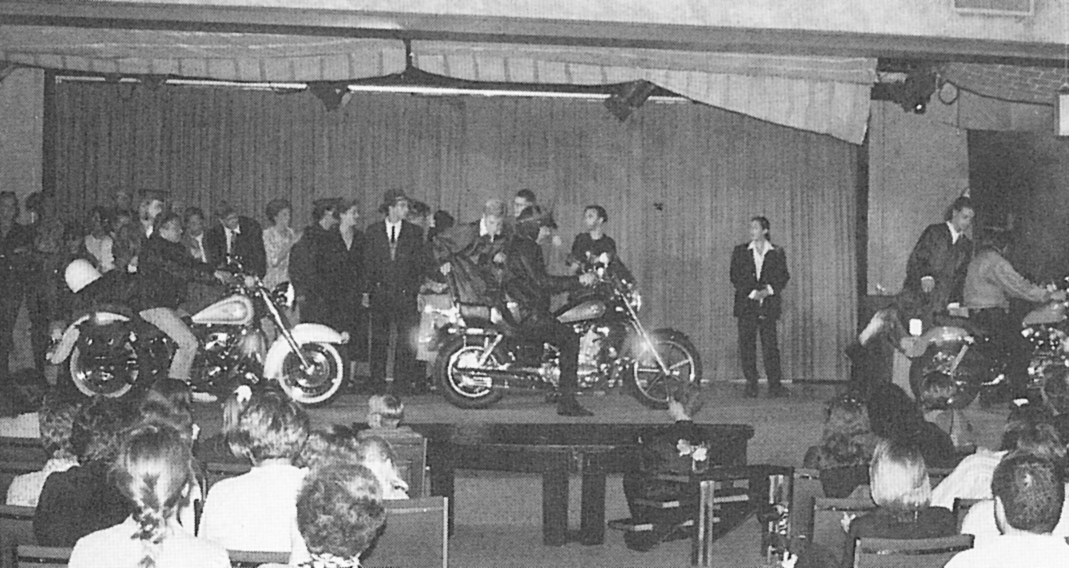Regular Schedule
TUESDAY, MARCH 3, 2026
Die GISW richtet sich nach dem regulären Stundenplan. Die Schule öffnet pünktlich.
........................................................................
GISW operates on a regular schedule. The school opens on time.
Looking back to the 1990s

Did you know . . .
that in June 1994, three motorcyclists rode their bikes across the German School (DSW/GISW) stage? As directors, Bernhard Wanders and Volker Fabricius had recruited Bernd Berg and Norbert Fischer (DSW teachers) and a parent of a DSW student to intervene as modern-day gods at the end of a theater production of the Bertolt Brecht’s “The Good Person of Szechwan.”
In a corrupt world full of greed, evil, dishonesty, and selfishness, three gods unsuccessfully attempt to find a good human being. Their well-intentioned desire to help the compassionate Shen Teh fails forcing her to wear a mask and turn herself into a masculine unemotional, vicious alter ego, Shui Ta. The gods themselves have created circumstances that make it impossible for those who wish to live good lives; even the divine is incapable of intervening on behalf of the vulnerable.
Brecht used a traditional deus-ex-machina ending but turned it upside down: An outside divine force is not able to bring a satisfying resolution the character’s problems. Going one step further, the German School production gave the play’s ending a modern spin, literally allowing each god to emerge with a real machine. But these gods, on their powerful, noisy motorcycles, were not able to swoop down from the sky to rescue the potentially good person and provide a happy end. Instead they flee to the pink clouds leaving the audience itself to find a solution: “The curtain closes; the questions remain open.” In an essentially bad world, can we find a way for a good person to remain so? Brecht suggests that humans themselves must rectify this unfairness; he hopes that each spectator will see the greed in contemporary society and act to resolve the problem.











